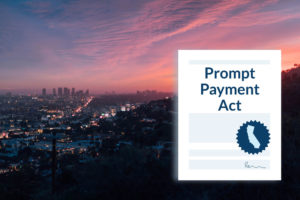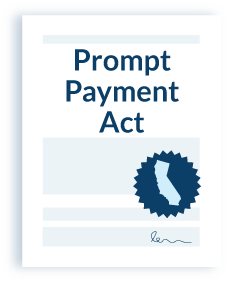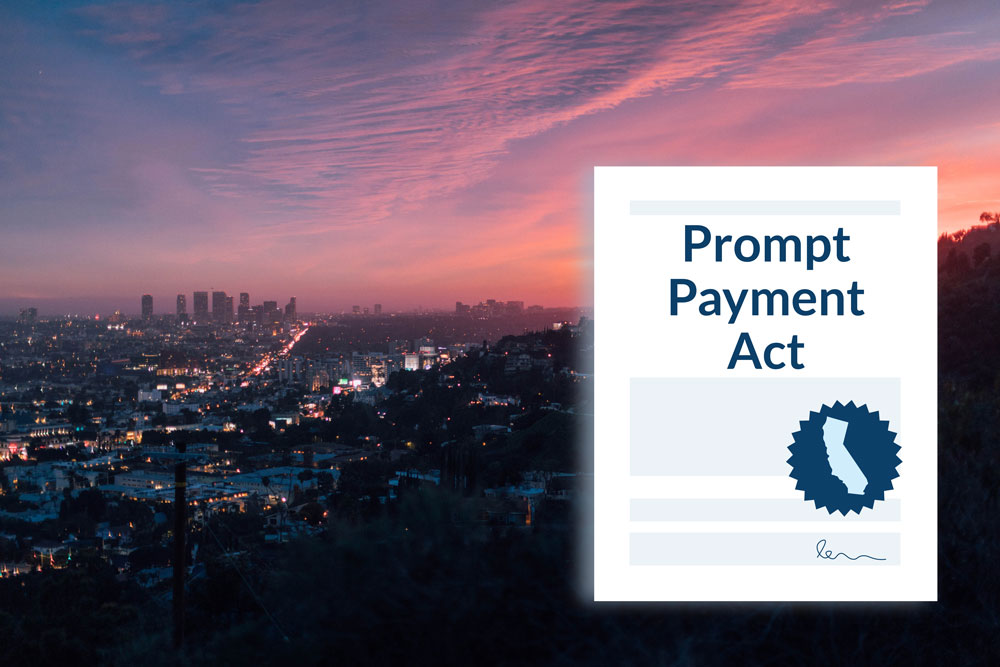
In April 2015, we wrote an article about the split in California concerning what constitutes a “good faith dispute” when dealing with retention and prompt payment. Since then, the split has continued with the most recent decision being handed down in December 2015.
Prompt Payment in California

What has been disputed in California courts is what constitutes a “good faith dispute.” In Martin Bros. Constr. Inc. v. Thompson Pacific, 179 Cal.App.4th 1401 (2009), the California appellate court decided that for private projects a “good faith dispute” arose out of contract price disputes AND change order disputes. On the other hand, the appellate court in East West Bank v. Rio Sch. Dist., 235 Cal.App.4th 742 ruled that “a good faith dispute” did not extend to change orders. This case was decided over a public project. These two decisions made it difficult to determine what exactly constituted as a “good faith dispute.” Some treated these cases as non-conflicting because one concerned a private project and the other dealt with a public project. Then, the California Court of Appeals handed down another decision.
The Recent Split
In United Riggers & Erectors v. Coast Iron & Steel, Co., 243 Cal.App.4th 151 (2015), the California Court of Appeals extending the East West Bank decision to apply it to private work projects. Coast Iron withheld retention from United Riggers on the basis of claimed additional change order costs and damages related to mismanagement. The Court of Appeals reversed the trial courts finding. The trial court based its decision off of Martin Bros. The Court of Appeals reversed on the basis of East West Bank, holding
To excuse Coast in this case from paying United the retention payments would unduly increase the leverage of owners and primary contractors over smaller contractors and subcontractors by discouraging subcontractors from making legitimate claims for fear of delaying the retention payment.
The Court of Appeals further reversed the award of attorneys fees to Coast Iron and in turn ordered that United Riggers be awarded attorneys fees.
Blurred Lines
This most recent case concerning what is a “good faith dispute” further confuses the split. Before this decision, the split, although still slightly confusing, could be distinguished between private projects and public projects. Now we have completely different rulings coming from different districts in California. This recent decision extends the limited ruling on public projects in East Bank to all construction projects. However, Martin Bros. is still good law in certain districts of California. The California Supreme Court has yet to take on this split issue. Until the Court does, it is unclear what exactly constitutes a “good faith dispute.” For more information on California Prompt Payment you can follow this link here.

